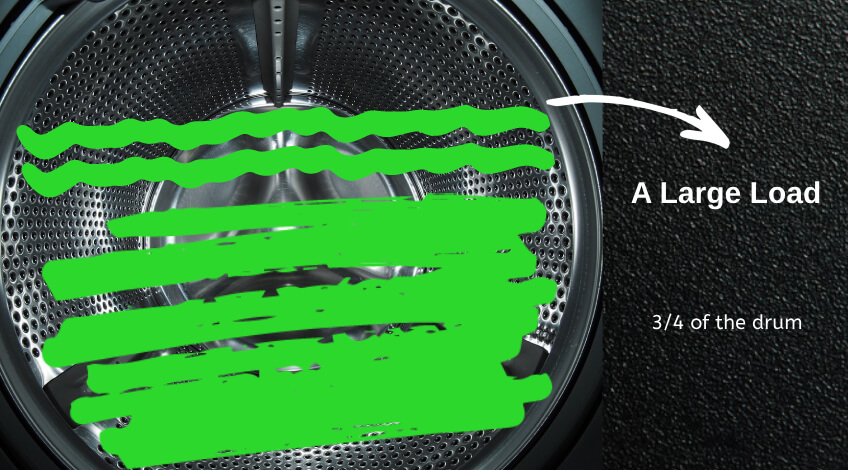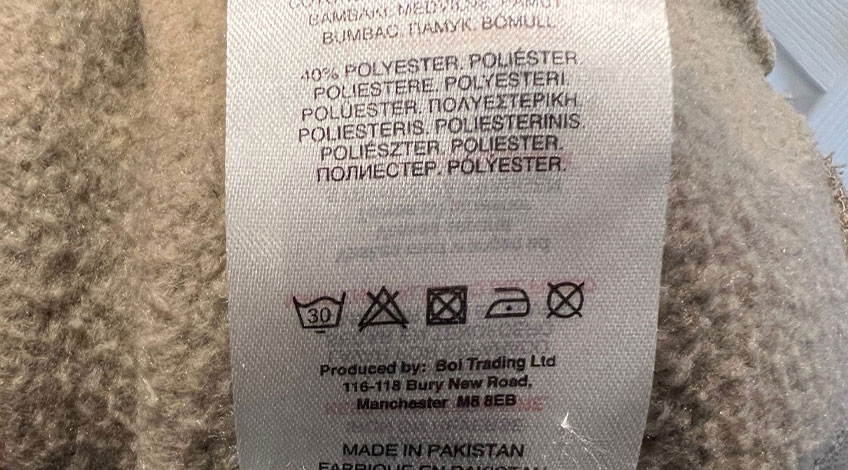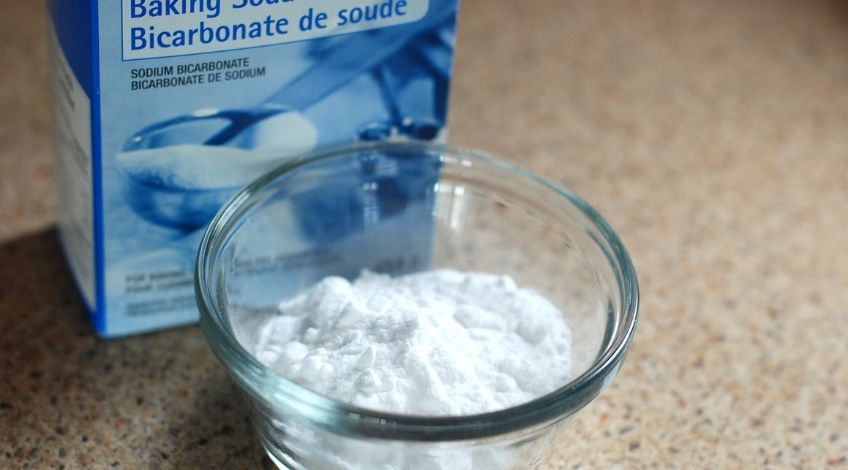
If Your Clothes Smell After Washing, You’re Making This Vital Mistake
You’ve just done a load of laundry, and you’re excited to put on your favourite shirt. But as you pull it out of the dryer, you’re hit with an unpleasant odour. Sound familiar?
Don’t worry, you’re not alone in this unfortunate and smelly situation. Let’s dig into why this happens and how to fix it.
Overloading Your Washing Machine: The #1 Laundry Mistake
You’ve just come back from a weekend camping trip, and your clothes are filthy. Instead of splitting the load, you cram everything into the washer in one go. The result?
Half-clean clothes that still smell like the great outdoors – which is not quite the fresh scent you were hoping for!

When you stuff your washer to the brim, you’re creating a tight ball of fabric that water and detergent struggle to penetrate. Imagine trying to clean a tightly rolled-up rug – the middle would stay dirty, right? The same principle applies here.
Here’s what happens in an overloaded wash:
- Water and detergent can’t reach all parts of your clothes
- Dirt and odours get shuffled around instead of being washed away
- Clothes can’t move freely, reducing cleaning effectiveness
- Moisture gets trapped, creating a breeding ground for bacteria and mould
When you’re in the shower, you move around to get clean. Your clothes need space to move too. So, avoid the temptation to stuff your washing machine to the brim.
Instead, aim for a loosely filled drum where your clothes can move around freely!
How To Solve The Overloading Issue
The solution is simple: wash smaller loads! But what does “smaller” actually mean?
Here’s a handy guide:
For top-loading machines: Fill it up to the agitator (that’s the big spinny thing in the middle), but no higher.
For front-loading machines: Fill it no more than 3/4 full.

TIP: Stick your hand into the drum. Can you fit your whole hand between the clothes and the top of the drum? If yes, you’re good to go. If not, it’s time to remove some items.
Remember, different fabrics take up different amounts of space. A load of fluffy towels will fill up your machine much faster than a load of t-shirts!
Other Culprits Behind Smelly Laundry
While overloading is a primary cause, several other factors can contribute to smelly laundry! Addressing these can help ensure your clothes always smell fresh.
Let’s have a closer look.
Dirty Washing Machine
Can’t figure out why your clothes always smelled musty after washing? Did you try everything from using a new detergent, fabric softener, and even essential oils?
Here’s the plot twist: The very machine meant to clean your clothes might be the source of the smell. Over time, washing machines can accumulate all sorts of gunk – soap scum, dirt, and even mould.
Here’s how to keep your washing machine fresh:
- Run an empty hot water cycle with a cup of white vinegar or a specialised washing machine cleaner once a month.
- Leave the door open after each use. This allows air to circulate and prevents that musty smell from developing!
- Wipe down the rubber seal regularly, especially if you have a front-loader. Those folds can trap water and become a mould paradise. Ew.
Additionally, remember to clean your washer’s detergent drawer, as it can also collect grime and bacteria.
Wrong Water Temperature
Using the wrong water temperature is like trying to wash greasy dishes with cold water – it just doesn’t work as well. All it does is prevent your detergent from working effectively!
For most loads, warm water is sufficient, but for heavily soiled items or bedding, using hot water is best. Of course, always check the care labels on your clothes to avoid damage from high temperatures.

Here’s a quick temperature guide:
- Hot water (60°C or above): Use for whites, towels, and heavily soiled items. It’s great for killing bacteria and dissolving oils.
- Warm water: Perfect for most everyday loads. It’s the Goldilocks of water temperatures – not too hot, not too cold.
- Cold water: Best for delicates and dark colours that might fade. It’s also more energy-efficient!
Leaving Wet Clothes In The Machine
We’ve all been there – you start a load, get distracted by a phone call or a Netflix binge, and suddenly it’s been hours (or even days!) since the cycle ended. This is a recipe for a stinky disaster!
Once the wash cycle is finished, promptly remove your clothes. Leaving them in the machine allows moisture to settle, leading to stale, damp smells.
How to avoid this:
- Set an alarm on your phone when you start a load
- If you forget and it’s already been a while, run the rinse cycle again before drying!
- Can’t get to the dryer right away? At least take the clothes out and spread them to air dry. It’s not ideal, but it’s better than leaving them in a damp clump.
Using Too Much Or Too Little Detergent
You’re in a rush and eyeball the detergent amount, pouring a generous dump into the machine. Unfortunately, that extra detergent doesn’t rinse away and leaves your clothes smelling worse than before!
Too much detergent leaves a residue on clothes that can trap odours, and it can actually protect dirt and bacteria from being washed away in the process. Using too much can also irritate your skin, which is a nightmare if you have allergies.
On the other hand, too little detergent doesn’t clean effectively, which leaves dirt and odours behind.
How to get it right:
- Follow the dosage instructions on your detergent packaging. They know their product best!
- Consider using a measuring cup rather than eyeballing it.
- Adjust based on load size, how dirty your clothes are, and your water hardness. Softer water needs less detergent, while harder water needs more.
TIP: If you see suds left in your machine after the cycle ends, you’re probably using too much detergent. Time to scale back!
Drying In Poor Ventilation And Using Incorrect Techniques
It’s winter, and you’re drying your clothes indoors. Without proper ventilation, the moisture from your wet clothes adds to the room’s humidity, causing your clothes to smell musty.
A dehumidifier can speed up drying and keep your home’s air fresh. You can also use a fan or open some windows to allow fresh air in.

Also, even if you’ve washed your clothes perfectly, drying them incorrectly can lead to that dreaded musty smell.
Tips for proper drying:
- Don’t overload the dryer. Clothes need room to tumble, just like they need room in the washer.
- Clean the lint filter before each use. A clogged filter will just make your tumble dryer work unnecessarily harder, and may damage it in the long run.
- Make sure clothes are completely dry before folding and storing. If in doubt, give them an extra 10 minutes in the dryer.
Alternative drying methods:
- Air drying: Great for delicates and saving energy. Just make sure you have good air circulation to prevent mustiness.
- Sunlight drying: The sun is a natural disinfectant and deodoriser. Plus, it’s free!
Cramped Storage Spaces
Overcrowded storage spaces can lead to poor air circulation, causing clothes to develop odours. Keep your wardrobes and drawers well-organised and avoid overfilling them!
Every few months, empty your drawers and wardrobes and let them air out for a day. If you find that your wardrobe is always full, consider decluttering, or folding your clothes the KonMari way!
SEE ALSO: What Is the KonMari Method?
Also, did you know that clothes stored for long periods can develop a stale smell?
Tips for long-term storage:
- Clean thoroughly before storing – Make sure items are completely clean and dry before putting them away for the season.
- Use airtight containers or garment bags – This protects clothes from dust and moisture.
- Include moisture absorbers – Silica gel packets or cedar blocks can help keep moisture at bay.
TIP: Before wearing clothes that have been in long-term storage, give them a quick refresh. Hang them outside on a breezy day or tumble in the dryer with a damp, fragrant towel for a few minutes!
Low-Quality Detergent Issues
Did you recently make a switch to a cheaper detergent to save money, and notice that your clothes didn’t smell as fresh as before?
Sometimes, the detergent you use might not be effective enough. Consider switching to a higher-quality detergent that’s known for its cleaning power and pleasant scent.
Look for detergents with enzymes that break down stains and odours effectively!
What you can do:
- Invest in a good quality detergent. It might cost a bit more, but it’s worth it for truly clean clothes.
- Consider fragrance-free options. Sometimes, heavily scented detergents can mask odours without actually removing them.
- Experiment with different brands. What works for one person might not work for another. Don’t be afraid to try different options.
Bonus Tips For Fresh-smelling Laundry
Now that we’ve covered the main issues, let’s look at some extra tricks to ensure your laundry always smells amazing:
Use White Vinegar
White vinegar is an excellent natural deodoriser. Add half a cup to your wash cycle to help neutralise odours and soften fabrics. You can also use it in the rinse cycle to remove any detergent residue that might cause smells.
Soak In Bicarbonate Of Soda
Bicarbonate of soda is another natural odour eliminator. Soak particularly smelly clothes in a solution of water and bicarbonate of soda before washing to help remove stubborn smells.

For an extra boost, add a half cup to your laundry during the wash cycle!
Dry Clothes Under The Sun
Sun-drying your clothes not only saves energy but also helps eliminate odours naturally. The ultraviolet rays from the sun kill bacteria and leave your clothes smelling fresh.
Just be cautious with coloured fabrics, as prolonged sun exposure can cause fading!
Use Essential Oils
Add a few drops of your favourite essential oil to a damp cloth and toss it into the dryer with your clothes. This will give your laundry a pleasant scent without the need for chemical fabric softeners!
- 100% PURE - Natural and Organic, undiluted, vegan, cruelty-free, premium quality Lemongrass essential oil
- AROMATHERAPY - Lemongrass oil helps to revive a tired mind and is a great tonic to revitalise the body
Store With Scented Sachets
Place scented sachets or dryer sheets in your wardrobe and drawers to keep your clothes smelling fresh. Lavender, cedar, and other natural scents can help keep odours at bay.
- The Master Herbalist's SANDALWOOD Hanging Wardrobe Freshener or Drawer Sachet to complement our Traditional Scented Drawer Liners. It comes with an integrated retractable hook so you can hang it in your wardrobe or lay it in a drawer or cupboard.
- SANDALWOOD is a classic and timeless fragrance. With a soft, earthy, warm, smooth, creamy and woody scent, it has very popular aromatic notes and is perfect for household drawers and cupboards.
Regular Maintenance
Perform regular maintenance on your washing machine, including cleaning the filter and checking hoses for blockages. This can help prevent odours from developing in the first place.
By following these tips and avoiding common mistakes, you can ensure your laundry comes out smelling fresh and clean every time!
Remember, achieving consistently fresh-smelling laundry is often about finding the right combination of techniques that work for your specific needs, washing machine, and types of clothing.
Don’t be afraid to experiment until you find the perfect formula for your household!
Do you have questions? Feel free to leave a comment below!
SEE ALSO: How To Clean A Washing Machine Like A Pro: Quick & Easy Guide
Frequently Asked Questions
Your clothes might stink after washing because you’re overloading the washing machine, preventing water and detergent from properly cleaning your clothes. It could also be due to using the wrong water temperature, leaving clothes in the washer for too long, or using too much or too little detergent.
To get the bad smell out of washed clothes, run a hot water cycle with a cup of white vinegar or a specialised washing machine cleaner. Also, make sure you’re not overloading the machine and use the right amount of detergent.
To get the strong body odour out of clothes, pre-soak them in a solution of water and bicarbonate of soda before washing. Additionally, add half a cup of white vinegar to the wash cycle to help neutralise odours.
The best temperature for washing smelly clothes is hot water (60°C or above), as it effectively kills bacteria and dissolves oils, which are often the sources of odours.
Yes, it is okay to air dry smelly clothing, especially if you dry them under the sun. Sunlight acts as a natural disinfectant and deodoriser, helping to eliminate odours. Just ensure there is good air circulation to prevent mustiness.





